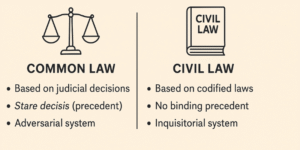In the evolving landscape of organisational leadership, Emotional Intelligence (EI) has emerged as a pivotal quality distinguishing exceptional leaders from merely competent ones. Initially conceptualised by Salovey and Mayer (1990) and later popularised by Daniel Goleman (1995), EI refers to the capacity to recognise, understand, and manage emotions, both one’s own and those of others. This ability allows leaders to respond appropriately to social complexities, resolve conflicts, and foster high-performing, emotionally balanced teams.
1.0 Theoretical Foundations of Emotional Intelligence
The term Emotional Intelligence entered academic discourse with the work of Salovey and Mayer (1990), who defined it as the “ability to monitor one’s own and others’ feelings and emotions, to discriminate among them and to use this information to guide one’s thinking and actions.” Goleman (1995) later expanded this to include competencies like motivation, empathy, and social skills, which he deemed more important for leadership success than cognitive intelligence or technical skills.
Goleman’s framework introduced five key components of EI:
- Self-awareness
- Self-regulation
- Motivation
- Empathy
- Social skills
These competencies collectively enable leaders to manage their emotions constructively, influence others positively, and create resilient, collaborative work environments.
2.0 Self-Awareness and Leadership
Self-awareness refers to a leader’s capacity to recognise and understand their emotions and the impact these emotions have on others (Goleman, 1995). This foundational component allows leaders to make objective decisions, resist impulsive reactions, and maintain credibility in emotionally charged situations.
For instance, a leader who is aware of their tendency to become defensive when criticised may pause, reflect, and respond calmly—fostering trust and respect within the team. A study by Gabriel (2025) on software teams in the DACH region revealed that leaders who displayed high emotional self-awareness were perceived as more fair, reliable, and approachable, contributing to higher team retention rates.
3.0 Self-Regulation: Managing Impulses and Emotions
Self-regulation involves controlling disruptive impulses and emotional reactions (Goleman, 1998). It enables leaders to stay calm under pressure, adapt to change, and maintain professionalism.
In crisis scenarios, such as the COVID-19 pandemic, emotionally intelligent leaders who practised self-regulation were better equipped to offer consistent, supportive, and strategic communication, thereby reducing anxiety and uncertainty among employees (Nti, 2025). These leaders inspired confidence by modelling resilience and patience, essential during turbulent times.
4.0 Motivation: The Internal Drive to Lead
Unlike extrinsically motivated individuals, emotionally intelligent leaders possess intrinsic motivation—a passion for achievement that transcends status or salary (Goleman, 1995). This internal drive empowers them to persevere in the face of setbacks and lead by example.
AbdelMohiman and Salem (2025) found in a qualitative study that leaders with high EI demonstrated greater initiative and innovation, resulting in improved team performance and employee satisfaction. Their strong vision, combined with goal orientation, helped align team efforts with organisational objectives.
5.0 Empathy: A Core Leadership Competency
Perhaps the most vital social component of EI, empathy is the ability to sense others’ feelings and perspectives. It facilitates effective communication, conflict resolution, and relationship-building.
Empathetic leadership fosters a psychologically safe environment where employees feel heard and understood. Windless (2025) illustrated how school principals who adopted servant leadership grounded in empathy contributed to lower levels of teacher stress, anxiety, and burnout. Similarly, empathy is critical in multicultural teams, where leaders must navigate diverse emotional expressions and cultural norms (Gopi, 2025). However, Caruso (2024) states, “Emotional intelligence is not the opposite of intelligence, it is not the triumph of heart over head – it is the unique intersection of both.”
6.0 Social Skills: Building Productive Relationships
Effective leaders leverage their EI to build cohesive teams, negotiate effectively, and resolve conflict diplomatically. These social skills are underpinned by strong communication abilities and emotional regulation.
In today’s globalised and virtual work environments, leaders must excel in digital communication while maintaining authentic relationships. Chin et al. (2025) showed that women leaders who scored high in emotional intelligence were more effective in remote team management, enhancing inclusivity and collaboration.
7.0 Emotional Intelligence in Organisational Contexts
The significance of EI extends beyond personal leadership traits to impact organisational performance, culture, and change management. Research shows that companies led by emotionally intelligent leaders report higher employee engagement, customer satisfaction, and profitability (Turja, 2025).
For example, transformational leaders, who inspire and intellectually stimulate their followers, rely heavily on EI to engage hearts and minds. Kafetsios et al. (2025) demonstrated that leaders’ abilities in emotional perception and regulation were directly linked to employee motivation and job satisfaction.
8.0 Developing Emotional Intelligence: A Lifelong Journey
Emotional intelligence is not an innate trait—it can be cultivated through training, self-reflection, coaching, and feedback. Caruso (2024) aptly described EI as “the unique intersection of both heart and head,” suggesting a balanced integration of rational thinking and emotional awareness.
Organisations are increasingly incorporating EI training into leadership development programmes, recognising its role in building resilient, inclusive, and ethical workplaces. Tools such as the Wong and Law Emotional Intelligence Scale (WLEIS) and Mayer-Salovey-Caruso EI Test (MSCEIT) are commonly used for assessing EI and designing personalised improvement strategies (Wu et al., 2025).
9.0 Critiques and Limitations
While the importance of EI is widely acknowledged, some scholars question its measurability, validity, and predictive power. Antonakis (2004) argued that EI overlaps with personality traits and lacks robust psychometric standards. However, more recent empirical research using multi-source feedback and behavioural assessments continues to validate its distinct role in leadership effectiveness (Manzoor et al., 2025).
In conclusion, emotional intelligence is indispensable to effective leadership in contemporary organisations. It enhances self-leadership, enables leaders to navigate complexity, and empowers them to influence and inspire others. As organisations grapple with rapid change, diverse workforces, and mental health challenges, emotionally intelligent leadership will remain a cornerstone of success. As such, cultivating EI should be a strategic priority in both individual and organisational development efforts.
References
AbdelMohiman, M.M. & Salem, A.H. (2025) ‘VFC Competence Framework as a Human Resources Development Framework’, International Journal of Contemporary Education, 8(2), pp. 49–63. Available at: https://econpapers.repec.org/article/rfaijcejl/.
Caruso, D. (2024) ‘The Concept of Emotional Intelligence’, ipl.org. Available at: https://www.ipl.org/essay/The-Concept-Of-Emotional-Intelligence-By-David-PKDJTTHESCP6.
Chin, Y.S., Mohamad, A.A. & Lo, M.C. (2025) ‘Digital maturity through the lens of emotional intelligence: women leaders’ perspective’, Equality, Diversity and Inclusion. Available at: https://www.emerald.com/insight/content/doi/10.1108/EDI-03-2024-0104/full/html.
Gabriel, C. (2025) Leading Beyond Pay. FHV University. Available at: https://opus.fhv.at/files/7137/Leading_Beyond_Pay.pdf.
Goleman, D. (1995) Emotional Intelligence: Why it can matter more than IQ. New York: Bantam Books.
Gopi, M.N. (2025) ‘Cross-Cultural Leadership: Managing Diverse Teams’, International Business Strategies. ResearchGate. Available at: https://www.researchgate.net/publication/396147003_International_Business_Strategies_A_Comprehensive_Guide_for_Global_Leaders_A_Comprehensive_Guide_for_Global_Leaders
Kafetsios, K., Sulejmanov, F. & Manuoglu, E. (2025) ‘Leaders’ emotion abilities and work outcomes’, Cogent Psychology, 12(3). DOI: https://doi.org/10.1080/23311908.2025.2564520.
Manzoor, Q., Younis, H. & Qudoos, Z. (2025) ‘The Role of Emotional Intelligence in Leadership Styles’, Journal of Development and Social Sciences, 6(1), pp. 34–47. Available at: https://ojs.jdss.org.pk/journal/article/view/1514.
Nti, E. (2025) ‘How Supervisors Can Help Subordinates Manage Stress’, ProQuest Dissertations. Available at: https://search.proquest.com/openview/ac3a1be8f180e24a1fe98aaaefb361af.
Salovey, P. & Mayer, J.D. (1990) ‘Emotional Intelligence’, Imagination, Cognition and Personality, 9(3), pp. 185–211.
Turja, A.S. (2025) ‘Use of Emotional Intelligence in Managerial Communication in Bangladesh’, ResearchGate. Available at: https://www.researchgate.net/publication/396096763.









